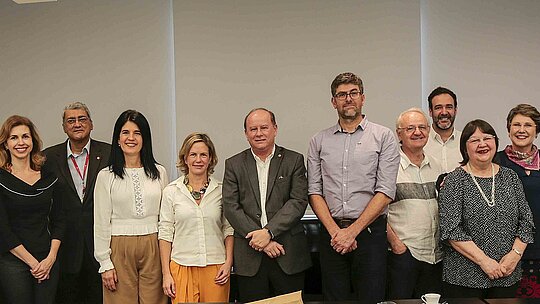The Graduate Program in Human Developmental Sciences has a score of 7 in the CAPES classification, which corresponds to the concept of national excellence with international relevance. It is an interdisciplinary program devoted to the scientific study of development and its disorders, aimed at professionals with training in Education, Psychology, Medicine, Speech Therapy, Physiotherapy, Occupational Therapy, Biology, Pharmacy, Law, Social Work, and other related areas. The topics studied in this program cover three lines of research:
a) Studies on development and its disorders in the clinical, cognitive, behavioral, and epidemiological areas and their individual and social implications. Studies on the development of children and adolescents with typical development, with disabilities, socio-emotional, behavioral, cognitive, and physical problems and/or neuropsychiatric conditions.
b) Developmental neuroscience. Investigations into basic neural mechanisms that determine/are involved in development and its disorders. Studies with animals and humans with observation and recording of behavioral and molecular phenotype data.
c) Policies and forms of assistance in education, psychology, and health. Studies on typical and atypical development, including the study of national policies, specialized procedures and public and private care programs related to people with disabilities, with socio-emotional, behavioral, cognitive, and physical problems and/or neuropsychiatric conditions. Studies on innovative forms of care incorporating Information and Communication Technologies are also included.
Graduate Program in Human Development Sciences studies development and its disorders from a highly complex interdisciplinary approach and has, as its main guiding objectives, the training of human resources and the production of cutting-edge scientific knowledge.

Relevants aspects to the researcher
Skills developed :
a) An understanding of the etiological factors of clinical research, endogenous and environmental factors of disturbances, analysis of individual, family and collective impacts;
b) An understanding of social and educational inclusion;
c) An understanding of the basic neurobiological mechanisms of developmental disorders.

![Universidade Presbiteriana Mackenzie [Universidade Presbiteriana Mackenzie]](/fileadmin/CONFIGURACOES/DEFAULT_21/Resources/Public/Template/img/logo/universidade_mack_v2.svg)




